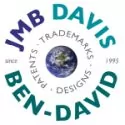- within Technology and Corporate/Commercial Law topic(s)
It is 75 years since the Jewish People reestablished a state in their historical homeland of the Land of Israel, leading to a fulfillment of the prayer reaffirmed annually for the last 2,000 years in every household on 'Seder' night: "Next Year in Jerusalem". Much has been accomplished in the modern State of Israel, despite the many wars and other crises that have buffeted throughout its history.
If one had to list the main characteristics that have enabled Israel to flourish economically and technology-wise as it has, close to the top of the list would be 'resilience'.
According to the Merriam Webster dictionary, 'resilience' is defined as the capability of a strained body to recover its size and shape after deformation caused especially by compressive stress, and an ability to recover from or adjust easily to misfortune or change. This is an apt description of the Jewish People from the time of exile so long ago, during the events leading up to the establishment of the state and thereafter.
It is also a fitting description of our current situation.
Many of our friends overseas have expressed their solidarity with us following the shocking events of 7.10. We do not take these expressions of friendship for granted and appreciate them from the bottom of our heart.
A visitor to Israel today will experience many different emotions, confusingly but accurately reflecting a complex situation. Together with the sadness of the events of 7.10, there is also an incredible sense of unity of purpose, and an outpouring of love and positive energy within a society that only a few short months ago seemed to be hopelessly fractured.
The calling up of 360,000 reservists, the loss of tens of thousands of pairs of working hands in the form of non-Israeli agricultural workers, the absence of tourism, and the temporary evacuation of well over 100,000 residents of our northern and southern border communities away from the border zones, are just some of the challenges that we are facing. They have put an enormous strain on our tiny country the size of Rhode Island and with a population of 10 million (less than many large cities around the world).
However, Israelis at large – as well as many friends who have travelled to be here with us at this time - have stepped up. In addition to having to cover for colleagues serving on the front lines, this means volunteering as drivers, helping in mobile kitchens feeding the soldiers with 'a taste of home cooking', providing clothing repair services and mobile telephone laboratories, fruit picking, vegetable picking, plant pruning and countless other areas. This is our resilience.
And remarkably, while occupied with all of the above, those who have not been called up are managing to return the country to sort of normal operations. This means people going back into the offices instead of working remotely, stores that had been closed in the early days of the war are now reopening, and traffic jams – well, they're just as bad as ever! which, strangely enough, actually feels good!
This too is resilience. It's the inner force that means we don't give up, however difficult things become. We support each other whether by giving, doing or just by showing up!
And we at JMB are doing our part. None of our team has been called up to reserve duty, although we all have family, friends and neighbors who have been called to serve.
The most important thing that we can do during the work week is to go about our normal business. We carry on, and assist the wheels of the economy to continue turning, whether on behalf of overseas companies who see their involvement in Israeli enterprises as something worthwhile, or on behalf of our local clientele, each of whom brings their own 'dream of tomorrow' to the table.
This too, is resilience.
And so, in this edition of our newsletter, we have a healthy mix between professional matters and examples of those planning for a better tomorrow. More specifically, Ivan Lipshitz provides his fifth and final installment of his series on trademarks, domain names and what lies therebetween, while we also hear about Medint Medical Intelligence as Avraham Hermon chats with their CEO Tanya Attias on our popular podcast "ISRAEL TECHNOLOGY FOUNDERS SPEAK".
Finally, we are pleased to showcase Avertto's stroke alert technology; the enrichment of the computer experience by Tactile World; and the production of a Tequila-like liquor in the desert by Negave Estates, an enterprise of which David Ben-Gurion, Israel's first prime minister back in 1948 and a resident of the Negev desert, would undoubtedly have been proud. If you wish to learn more about any of these fledgling enterprises, or to partner with them, please contact them directly. Obviously, if I can be of assistance in this regard, please do not hesitate to reach out.
As events continue to unfold we continue to pray for a real and lasting peace, both here and around the world!
The content of this article is intended to provide a general guide to the subject matter. Specialist advice should be sought about your specific circumstances.

